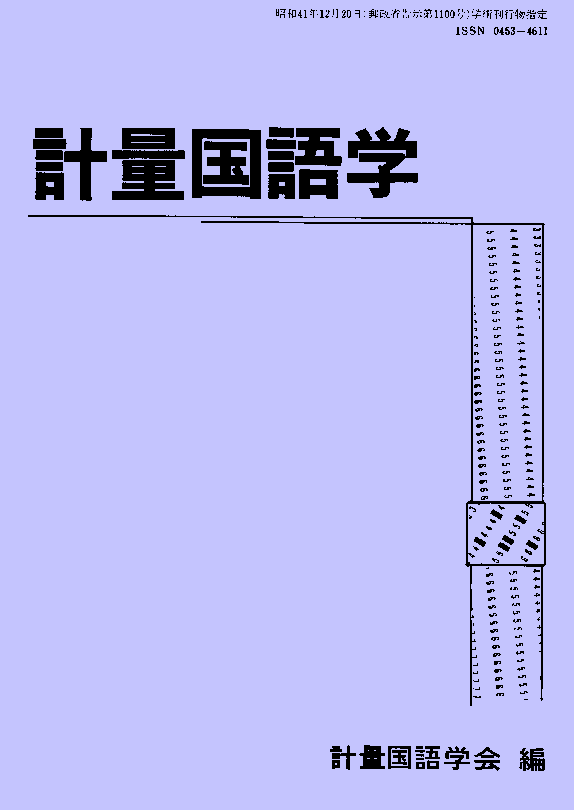Volume 30, Issue 4
Displaying 1-9 of 9 articles from this issue
- |<
- <
- 1
- >
- >|
Paper (B)
-
Article type: Paper (B)
2016Volume 30Issue 4 Pages 195-209
Published: March 20, 2016
Released on J-STAGE: May 01, 2024
Download PDF (836K)
Book Review
-
2016Volume 30Issue 4 Pages 210-212
Published: March 20, 2016
Released on J-STAGE: May 01, 2024
Download PDF (177K) -
Article type: Book Review
2016Volume 30Issue 4 Pages 213-215
Published: March 20, 2016
Released on J-STAGE: May 01, 2024
Download PDF (232K)
Tutorial
-
Article type: Tutorial
2016Volume 30Issue 4 Pages 216-233
Published: March 20, 2016
Released on J-STAGE: May 01, 2024
Download PDF (1439K)
Obituary
-
Article type: Obituary
2016Volume 30Issue 4 Pages 234
Published: March 20, 2016
Released on J-STAGE: May 01, 2024
Download PDF (2162K) -
Article type: Obituary
2016Volume 30Issue 4 Pages 235-236
Published: March 20, 2016
Released on J-STAGE: May 01, 2024
Download PDF (163K) -
Article type: Obituary
2016Volume 30Issue 4 Pages 237-239
Published: March 20, 2016
Released on J-STAGE: May 01, 2024
Download PDF (186K) -
Article type: Obituary
2016Volume 30Issue 4 Pages 240-242
Published: March 20, 2016
Released on J-STAGE: May 01, 2024
Download PDF (188K) -
Article type: Obituary
2016Volume 30Issue 4 Pages 243-250
Published: March 20, 2016
Released on J-STAGE: May 01, 2024
Download PDF (359K)
- |<
- <
- 1
- >
- >|
